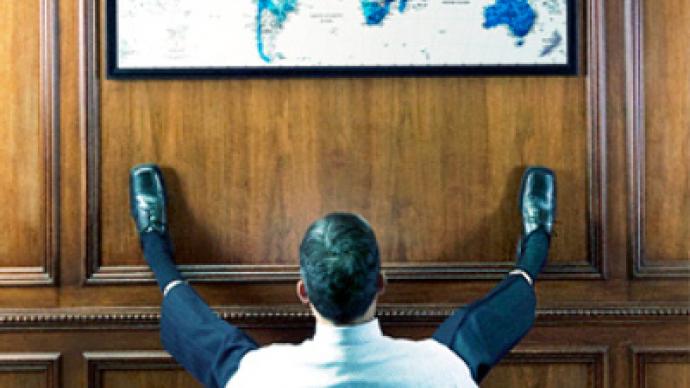Georgia–South Ossetia consultations suspended

Representatives of Georgia and South Ossetia failed to agree on the place for holding the consultations. The EU mission in Georgia calls on both sides to cooperate.
The second meeting between the Georgian and South Ossetian officials, co-sponsored by the EU monitors and Russian servicemen, was aimed at settling the situation in the region after the war, and scheduled for Thursday, but eventually had to be cancelled. Boris Chochiev, a representative of South Ossetia’s President on the post-conflict regulation, told Interfax that the Georgian side is to blame.
"It was planned to hold the second meeting in the same location as the first one, in the village of Ergneti, on the Georgian-Ossetian border. However, Georgia, supported by the EU observers, demanded that the meeting had to take place in Gori, and then in the Georgian village of Tirdznisi, far away from the adjacent territories. That was against the Medvedev-Sarkozy agreement, and unacceptable for the South Ossetian delegation," he said.
According to Mr. Chochiev, it was the Head of the European Union Monitoring Mission to Georgia, Hans-Joerg Haber, who informed them that the meeting would have to be postponed, after the South Ossetian side expressed its disagreement.
Meanwhile, the Georgian Interior Ministry put the blame on the other side.
"Despite the efforts taken by the EU and OSCE missions and Georgia, the meeting was thwarted by the Russian and South Ossetian sides," the ministry said on Thursday.
Reaction from Russia’s Foreign Ministry
Reaction from Moscow followed immediately. An official representative of Russia’s Foreign Ministry, Andrey Nesterenko, imposed responsibility on Georgia. According to him, the talks could not be held in Gori both for political and security reasons.
“We were ready for the meeting. However, at the last moment our Georgian counterparts refused to hold it in the old place, near the village Ergneti at the Georgian-South Ossetian border, and insisted on all participants to come to Gori instead, far from the border and deep inside Georgia’s territory,” said the diplomat.
“Both for political and security reasons, this suggestion could not be accepted by the South Ossetian delegation,” he added. “It is still difficult for the Ossetian people to be sure that they will not be subjected to new provocation,” said Nesterenko.
The quadripartite meetings are taking place in fulfillment of the Geneva agreements of February 2009 to discuss normalization in the Georgian-South Ossetian border zone.
Clashes still possible?
The EU Monitoring Mission to Georgia, in its turn, called both sides to closer co-operation. In its statement, delivered on Thursday, the Mission made its assessment of the rumors that Georgia and South Ossetia are increasing their military presence on both sides of the border.
“We continue monitoring the actions of Georgia’s police and military forces in accordance with the memorandums of understanding which were signed with the Internal Ministry and the Ministry of Defense, and we do not observe any activity that runs counter to these agreements,” says the statement, according to Interfax.
On 12 August 2008, Russian President Dmitry Medvedev ordered an end to military operations in Georgia, when Russia intervened in the conflict to stop Georgian aggression against South Ossetia. Later on the same day, together with the French President and the EU President-in-Office Nicolas Sarkozy, he presented in Moscow a six-point plan for a cessation of hostilities in the south Caucasus.













